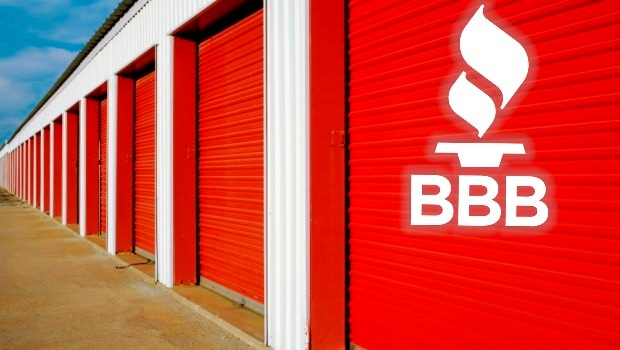Does Better Business Bureau Accreditation Matter for Self-Storage Operators?
A Better Business Bureau membership was once the gold star of business reviews for self-storage facilities. But with online-review sites like Yelp now available, should operators still pursue this paid form of accreditation?
September 9, 2014

By Emmet Pierce
Reprinted with permission from "The Storage Facilitator" blog.
Because the Internet now provides consumers with many sources of information about businesses, some self-storage professionals question the need for membership in the long-established Better Business Bureau (BBB). Founded in 1912, the nonprofit BBB is designed to boost public trust in businesses. More than 100 independent offices in the United States and Canada are overseen by the Council of Better Business Bureaus in Arlington, Va. The affiliates take consumer complaints and monitor the performance of local businesses.
“There are lots of places to get opinions about a business," says Robert Chiti, president and CEO of OpenTech Alliance Inc., a call-center provider and manufacturer of automated kiosks. “The BBB would be last on my list of places to check.” Chiti maintains that self-storage consumers are much more likely to look at business-review websites, such as Angie’s List, to learn about self-storage businesses than to turn to the BBB for guidance.
Natolie Ochi, a partner at SKS Management LLC, which manages and markets self-storage facilities, says having BBB accreditation isn’t a significant marketing tool. She notes that consumers have a variety of ways to learn about the facilities she represents. “We now have Yelp and Google and social media,” she says. “To me, those have replaced chambers of commerce and the Better Business Bureau.”
Choosing BBB Accreditation
Not all self-storage operators dismiss the importance of BBB accreditation, however. Don Schreiber, owner of Boston Self Storage and Eden Self Storage in New York, says he displays the BBB emblem to increase his facilities’ appeal to consumers.
Being part of the BBB bolsters consumer trust, since the public knows the organization tracks and reports consumer complaints, says Schreiber, who pays about $300 a year for his BBB memberships. “We have always been with the BBB. It is a part of our advertising.”
Becoming accredited with the BBB gives facilities a chance to show their commitment to being a business customers can trust, says Katherine Hutt, a national spokeswoman for the BBB’s governing council. Each BBB office provides members with the BBB seal, which can be displayed in offices, on vehicles and websites, and in advertising and marketing.
Local BBB organizations are active in their communities, working with chambers of commerce, law-enforcement agencies and others to promote ethical treatment of consumers, Hutt says, adding that one of the strengths of the BBB is that it’s governed at the local level. Each office is a nonprofit corporation with an independent board of directors consisting of local business leaders.
The cost of accreditation varies, depending on the size of the business and the number of employees. For small businesses, it typically ranges from $400 to $1,000 per year.
Winning BBB Accreditation
To win accreditation, a business must receive a “B” rating or higher from the BBB. The group assigns grades ranging from “A+” for the best performers to “F” for the worst. The organization examines many factors when considering applications, including how long the company has been in operation, whether it’s had any complaints filed against it, how it responded to complaints and the owner’s reputation, Hunt says.
The BBB also reviews an applicant’s website, advertising and marketing materials to ensure the business is ethical in its dealings with the public. If the business is part of an industry that requires a license, the BBB requires proof.
Although consumers have more choices today for obtaining self-storage business reviews, some operators still find value in the BBB designation as the organization continues to enjoy a high level of recognition among consumers.
Emmet Pierce is a San Diego-based freelance writer whose work appears on SelfStorage.com and SpareFoot.com.
You May Also Like





